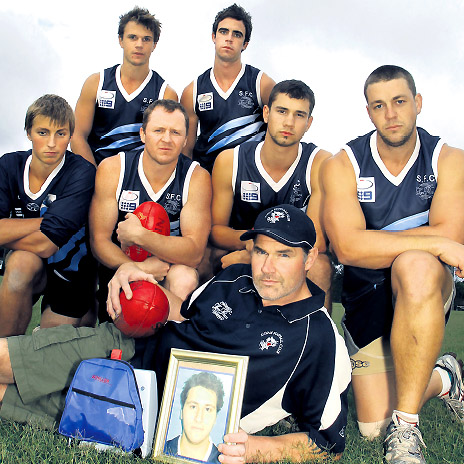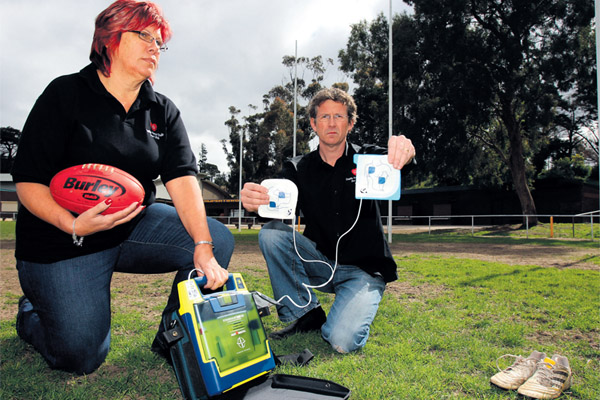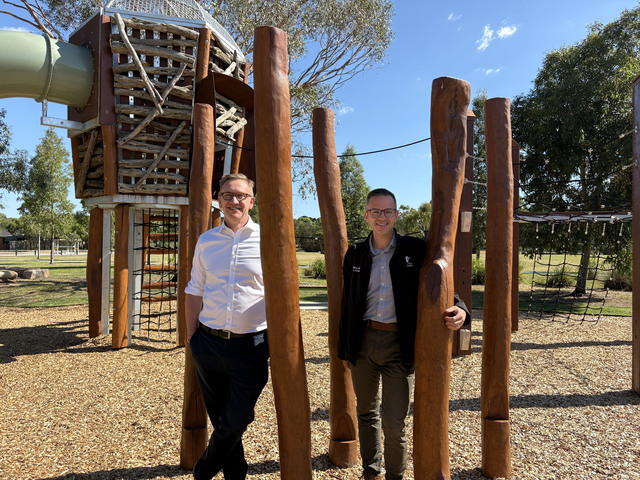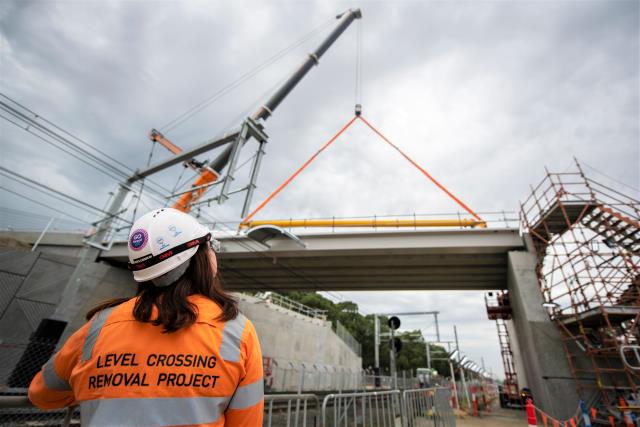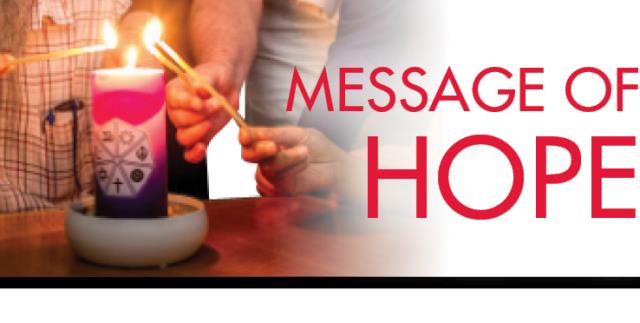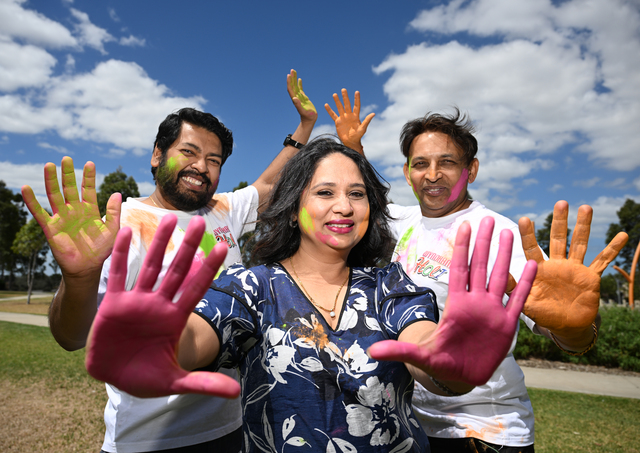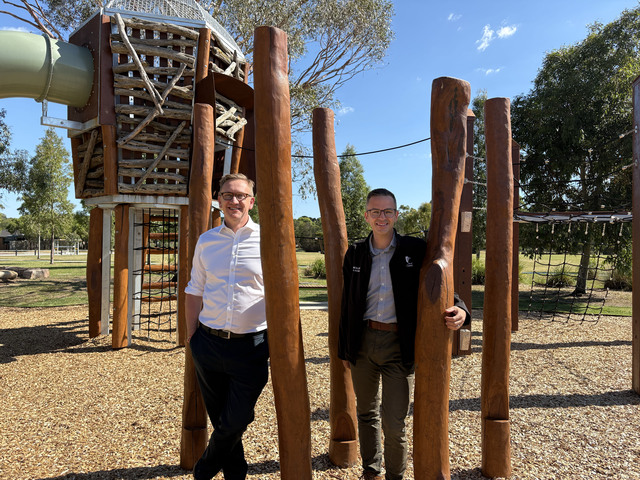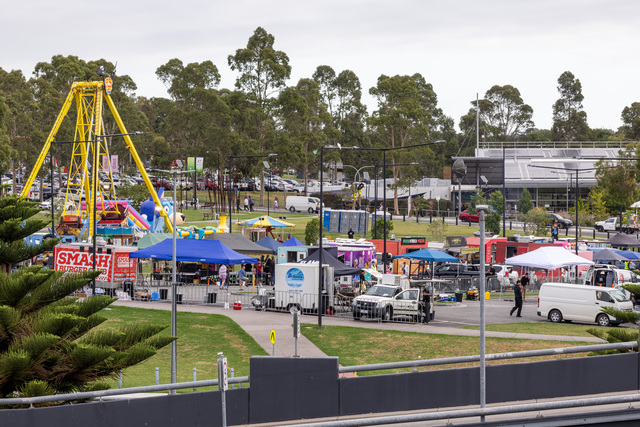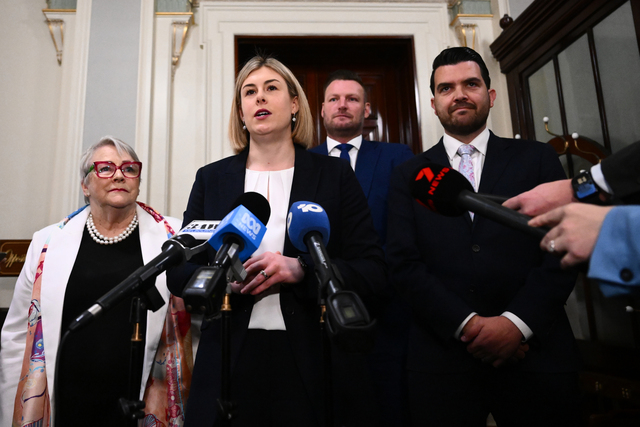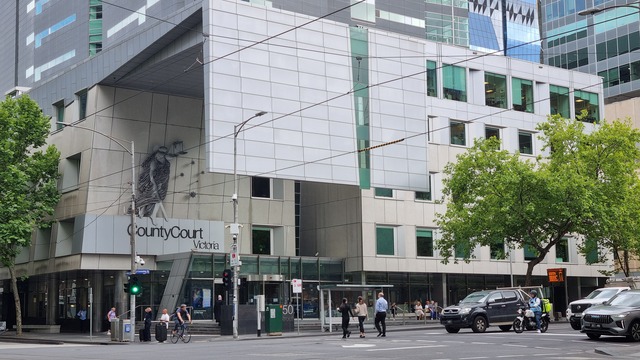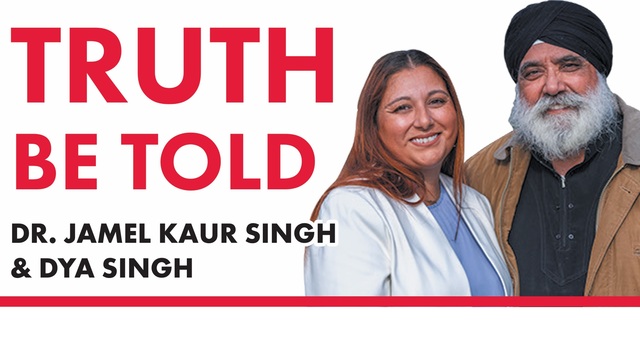Football is about to kick off and clubs are dreaming of premierships. But there is a siren call to think about adding defibrillators – simple devices that can avert tragedy – to the first aid kit. Cameron Lucadou-Wells reports.
FOOTY isn’t for the faint-hearted. But regardless of the courage required to compete, no one expects a player to die on the field.
It had never happened at Silvan Cats Football Club until last year.
On March 7, the ground was packed for a pre-season family day when, during an intra-club practice match, 22-year-old Silvan gun Vincent ‘Boris’ Bonanno collapsed.
Two players worked to revive him, a registered nurse and two police officers at the ground performed CPR and, after what seemed like an eternity, a medical helicopter and ambulance arrived.
The medics performed CPR for 45 minutes but in vain.
President Chris Maclagan said Vincent, seemingly fit and with no previous signs of heart trouble, had an aneurysm that burst a huge artery near his heart. Nothing could have saved the charismatic, popular clubman.
There was counselling and a club wake soon afterwards. Training stopped for two weeks as the tight-knit club pulled together, banding around Vincent’s brother and under-19 coach Johnny, his cousin and reserves coach Steve Musico and father and life member Frank.
Twelve months on, Maclagan says it’s something he doesn’t think he’ll ever totally understand.
“It affected the club even more than I thought it would. It really affected our young players – you don’t think about death at that age.
The club has since named a rising star award, for the club’s best player 22 years and under, after Vincent.
Vincent’s No. 29 jumper was retired and now the club has on hand a potentially life-saving defibrillator labelled ‘Gift from Boris 2011’.
The defibrillator, which can electrically revive a person under cardiac arrest, would not have saved Vincent but may save the life of a spectator, official or player in the future, Maclagan says.
Defibrillators, which cost upwards of $2000, give simple instructions and can be used by almost anyone to revive a heart attack victim. They are becoming more common in airports, stations, workplaces, shopping centres and other public spaces.
The units are being regarded as life-savers because time is of the essence in cardiac arrests. For every minute that passes, a victim’s survival chances drop by 10 per cent. By the time paramedics arrive, it can be too late.
Maclagan is part of a growing number of defibrillator converts, who believe the units should be vital equipment at football clubs – which often share their rooms with other sports clubs and community groups.
He believes the price tag, considered too high by many grassroots clubs, should be met by the AFL or the state government.
But that benevolent role has been taken by a MICA paramedic Andrew White and bereaved mother Sue Buckman, who were hit hard by the death of Sue’s son Stephen during football practice in 2010.
The pair have led a ‘Defib your club, for life’ campaign that in about a year has raised $1.3 million and donated 600 defibrillators to football clubs in Victoria.
They have far exceeded the state government’s efforts, which funded 86 units by August last year.
The pair’s ultimate goal was to donate 750 defibrillators – enough to supply every football club in the state.
The catalyst was Stephen Buckman’s death from cardiac arrest at Rupertswood Football Club. White, off-duty at the time, put his paramedic training to work but, without a defibrillator, was unable to revive him. He says as a paramedic he’s seen cases when a defibrillator would have saved a life.
Shattered by Stephen’s death, he’s worked long hours and used up his annual and long-service leave to spread the word and save lives. “We’ve sustained the effort because of the passion. The passion just stays there; it stays vivid in your mind and drives it,’’ White says.
“When we started the campaign it was really devastating to hear of two other deaths [like Vincent’s] at other venues. They drove us more.’’
A number of leagues and businesses have got on board. Eastern Football League, which includes Silvan Cats, is providing grants to clubs to buy defibrillators.
Bendigo Community Bank has donated 150 defibrillators to the cause. AFL Victoria is backing a “lap-a-thon” fund-raiser at all its Auskick clinics in May, which should raise enough for the remaining 150 defibrillators to meet White’s goal.
“It’s become a large part of my life now. I don’t think I can stop at 750 defibrillators. I’m now getting inquiries from clubs around the country.’’
Media commentator and former Melbourne AFL player David Schwarz has been a strong supporter, spruiking the cause on his SEN radio show.
“Andrew’s a champion. He’s one person who’s got off his arse and put in so much time and effort,” Schwarz says.
He calls on big sports bodies like the AFL, Cricket Australia and Basketball Australia to ensure the units are at all venues.
“For the sake of $2000, how would you like to see your son or daughter not living because a defibrillator isn’t there?”
Another passionate backer is Paul Wright, president of Narre North Foxes Junior Football Club. His 13-year-old son Troy collapsed with cardiac arrest at training last year.
Paramedics were there within minutes and revived his son, who later had a stent to open up a compressed aorta.
His club last year received a belated defibrillator from Defib your Club and Wright and his son became passionate advocates for defibrillators.
Last week they were part of an announcement by their league, South East Juniors, offering defibrillators to 17 clubs.
“Andrew and I are mates now. I just try to support the campaign whenever I can. If the ambulance didn’t come in time, we would have had to have used a defibrillator.’’
He’s happy but nervous that Troy has resumed football training.
“He’s struggling with his fitness because he hasn’t done anything for six months. But besides that, he has a new energy. He says he’s never felt better.’’
Watching his club’s charges train on the turf on which Vincent died, Maclagan tells the Weekly that defibrillators should be essential at football clubs, no matter the cost.
“We have up to 300 people at a home game. Anyone can collapse – an old spectator, a player or official. A debrillator will give us peace of mind.’’
To donate or register for a defibrillator, go to Defib Your Club, For Life or the ‘defibyourclubforlife’ Facebook page.

